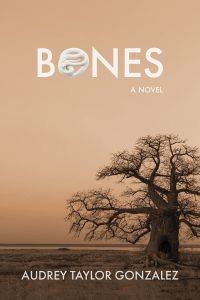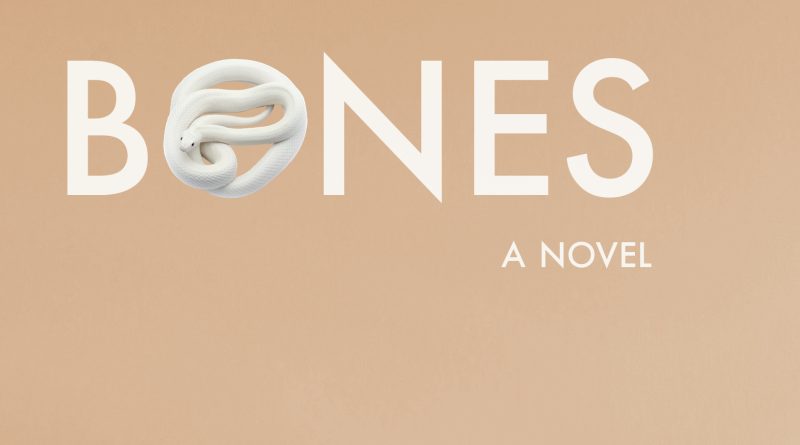Bones
The Baltimore Post-Examiner is proud to present an excerpt from Memphis legend Audrey Taylor Gonzalez. She is the author of several books, including the fictional memoirs The Lolololo Tree and South of Everything. This is A follow-up to South of Everything. Amazon’s summary of the book is as follows; “Bones traces the story of Missy, a young woman from a plantation-owning family in the Deep South. When Missy is violently attacked as a teenager, she is sent to a boarding school and her beloved Mr. Washington is wrongfully imprisoned. Baffled by the pervasive racism of her environment, Missy allows her fierce love for Mr. Washington to be her guiding light on her mission to be reunited with him.” Purchase at Amazon.
 Praise for Bones:
Praise for Bones:
CHAPTER 1
August is a suffocating month. No rain. Hot sun. Those hazy-white days when all you hope for is that the day will turn to night, and soon. Maybe then a breeze would arrive. Maybe a miracle.
I found a few things to do my seventeenth summer when Daddy had banned me from driving any car, not just because I had disobeyed him, but who would have thought I’d have snuck off to a rock-and-roll concert way downtown in Memphis on dangerous Beale Street? Worse, I had gone with Mr. Washington, our horse breaker and head groom in my parents’ horse barn. He was Black, and white girls didn’t do that kind of thing in the 1950s.
I was fairly content to stay on the farm and ignore all the skinny girls whispering and parading around in front of the lifeguards at the country club swimming pool. I didn’t fit into their sororities or like their likes.
And, sadly, my friend Old Thomas was gone. He just fell over dead, at seventy-five years old, after emptying the garbage one Thursday night, right after he had served dinner to us. He was still wearing his starched white waiter’s jacket. Old Thomas, brought up from the cotton compress years ago, had been our chauffeur, handyman, butler, fixer-upper, dog feeder, and animal savior, my protector, and the only person who knew where the lolololo tree was––that old tree that inhabited the back pasture somewhere on our farm. It was a mystery that only my little brother and I knew about.
Most days, I found the rogue horse Indio hiding in the old cow pasture, and he’d kneel down so I could crawl on, so we could gallop through the high grasses and chase the wind or get drenched by the rain. If the day was hot, I’d take off my shirt, tie it around my waist, pull my bra straps off my shoulders, and hope the sun would turn my skin soft brown like Mr. Washington’s. In those pastures, I could get far away from anyone; there was a privacy I loved. Just me and my horse. Sometimes I’d snitch a couple of Mammyrosy’s day-old biscuits, already buttered, to keep me unhungry, and I’d bring along a few apples for Indio.
Those days, I rarely got to see Mr. Washington, who really owned Indio. It seemed he was always busy at the barn with the saddle horses. Our stable had become one of the best in the country that summer, our stallion King’s Farewell was in demand, and Mr. Washington was earning a good commission on every sale.
“Trousseau money,” he’d tease as he looked at me. I wondered why he needed a trousseau. He didn’t have a girlfriend, that I knew of.
There were lots of trips to horse shows, none of which I was allowed to go on. But if Mr. Washington saw me, he’d do a boogie step, and I supposed he had me on his mind. “Don’t be cruel to a heart that’s true,” he’d sing on the spot with a quick Elvis swirl, pointing at me so I’d laugh. He may have been in his mid-twenties, but from the first time I saw his silhouette in the horse barn, my teen heart caught on fire when I was near him. His eyes were always covered with dark sunglasses. I didn’t know why. But I felt strange when he was near, and I trusted him.
Since Old Thomas was gone, only Mammyrosy would listen to my chatter. She was real religious and was Daddy’s cook, who made the best biscuits, fried eggplant, and Pompadour pudding in the world. And she always warned me to stay away from “that man at the horse barn.” I couldn’t figure out why. So I didn’t bring Mr. Washington up in conversation.
Now and then, my younger brother, Robert E. Lee, who was obsessed with tennis, got curious about what I was doing. When we were younger, he’d follow me to the lolololo tree when Old Thomas wandered there after work. And that’s where we heard all of Old Thomas’s stories about Jesus, while surrounded by mystical creatures which resided in that tree’s special landscape.
Truly, my freedom was just getting away from the big house, from everything, and galloping through the furthest pastures on Indio’s back. As he leaped up and down gullies while I held on to his mane, I would think about Mr. Washington, and often Indio and I would even lope out to the tree to see if the place was still crowded with its usual visitors––varieties of small snakes, insects, butterflies, and birds, and any creature really that wanted to pop in or still hung out there, even though Old Thomas was no longer alive to fix them up with healing and prayer and goodness. But best of all, no person could find us out there. I felt safe and alone and no one knew the secrets of my heart. I could sing as loud as I wished, and no one would hear. Sometimes there’d be a dozen airmail birds riding on Indio’s rump. Other times, we’d be visited by bright-green grass- hoppers that’d rest on Indio’s mane and pink butterflies that got tangled in my hair. Or we’d follow the sounds of the crickets and try to discover where they actually rested. If it got late enough, we might be surrounded by lightning bugs, flashing like cigarette lighters.
Mother usually had to send out a scouting party to find me. But it was Mr. Washington who would know when our time was up, and he’d whistle in his magical way so Indio would immediately expose our location with a whinny, or he’d gallop across the fields, with me hanging on by a hair, to where Mr. Washington was located.
Recently, Daddy had been upset because hunters had been sneaking onto the farm. We had a thousand acres. He wanted to be sure we could ride wherever we wanted through the pastures filled with mares and colts and a few Hereford cattle. But the huge plots of land were breeding grounds for doves, pigeons, and quail, and now and then, he’d have to run off poachers. I knew the farm was a refuge for quail because when Indio and I sped through the pastures, it was normal for a covey of quail to shoot up out of the deep grass and cause Indio to curve out away from their surprise rise.
One particular Sunday afternoon as Indio and I were moving slowly through the new back pasture that Daddy had bought to buffer the farm against the encroaching city limits of Memphis, I heard a series of loud cracks. Indio stopped short, and since I was not paying attention, I fell hard onto the ground, unconscious.
I don’t know how long I was in a silent darkness. When I came to, I knew there were people nearby, but the crickets were making so much noise, I couldn’t hear what was being said. There was laughing and the smell of cigar smoke and whiskey, and I grew aware of an awful pain between my legs. My new bra had been broken and I was completely exposed.
I didn’t dare move. Something had happened. Then the cuss words being tossed through the air became clear. When I had the strength to lift my head, I saw three bug-eyed, dirty white men who needed shaves and had awful tattoos all over their fat arms. They were zipping up their jeans.
“That was good pussy,” said one, above the cricket chirps.
“You bet, virgin stuff, brother,” said the other. “Let that stable boy talk his way out of this. Ha.”
“Let’s get the hell out of here. Funny how that horse took off. What about our quail?”
“Leave ’em, Joe. Just leave ’em. We ain’t got no license no ways. Someone surely heard those shots. Let’s go on back to the truck.”
I opened my eyes and tried to lift up on my elbows. Beside me, I could see dozens of green snakes and blue racers framing my body like the border of a garden. But each snake was lifeless, with its head chopped off.
“Oh dear. Old Thomas’s friends from the tree. Murdered,” I said, and I lay back down and started to cry.
Two of the men heard my moaning, jumped out of the truck, ran over to me, grabbed my legs, and started dragging me toward the truck.
“She can identify us, Spit. Could get us in awful mighty trouble.”
Then, four gunshots rang out. I could hear the thundering of Indio’s hooves coming close. The two dragging me dropped my legs, and I fell flat in a thud on the dirt. Another lumbered into the grass, screaming as he tried to escape the bullet that would hit his skull. A fourth, at a distance, yelped at his wound but gunned the truck out of there, leaving his buddies behind.
At once, Mr. Washington was there. He jumped off Indio and began to kick the heads of the surely dead men, while his dog, named Joseph, was tearing up their legs with his fierce teeth.
“Damn you, sons of bitches. Damn you,” he said.
Then I could feel him gently lift up my head and cradle it in his one arm while he covered me up with a saddle blanket using the other. He kissed my forehead.
“I’m here, Missy, I’m here. Sacred Virgin of the Moon Frog. You are okay. We’ll get you home.”
Indio pounded his feet constantly, like he was anxious to get going. Mr. Washington tried to re-dress me as best he could. He lifted me up as if I weighed no more than a meringue, then he carried me off on Indio. The crickets had grown silent.
“Don’t worry, Missy, I got ya now.”
I could hardly feel Indio’s pace, although I knew we were going fast. Mr. Washington became such a part of his horse that there was no separation between their movements. Maybe we were flying over the field. I seemed to be embraced in a cloud whose ends were held up by birds with green and golden feathers. I could see a long river winding before us, reflecting the sky like the strange and shiny hair on the dog Joseph’s coat, which often reflected the things around him. Then I knew I was surrounded by what could only be described as love. The pain had gone.
Audrey Taylor Gonzalez is a Memphis legend and accomplished Southern writer. She is the author of several books, including the fictional memoirs The Lolololo Tree and South of Everything. Her sermons and collected writings can be found in Sermons and Such and Words from the Rev. Audrey lives in Memphis, Tennessee and in Uruguay with her husband and their four dogs.

